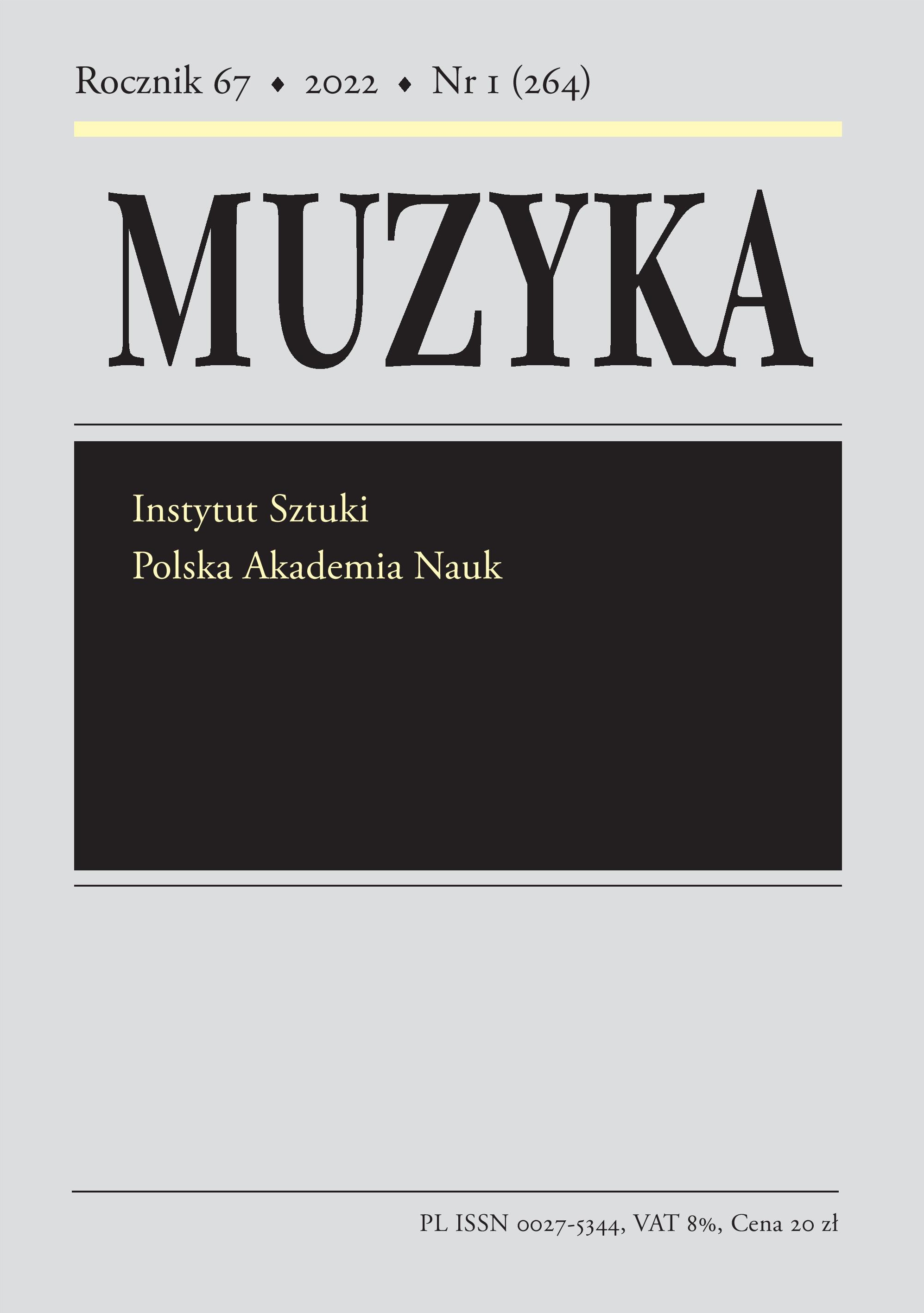Życie i aktywność Wacława Raszka (1764–1837) w świetle źródeł
The Life and Work of Wacław Raszek (1764–1837) in the Light of Historical Sources
Author(s): Jolanta Bujas-Poniatowska, Kamil Poniatowski, Andrzej Edward GodekSubject(s): Music
Published by: Instytut Sztuki Polskiej Akademii Nauk
Keywords: Wacław Raszek; sacred music; nineteenth-century sacred music culture; Kancjonał muzyki kościelnej; Music Institute in Puławy; music in the Catholic Church
Summary/Abstract: Wacław Raszek, active in the late eighteenth and early nineteenth century, is one of those musicians whose life and work, despite scholarly interest, remains largely unknown. Virtually all the basic information concerning this musician, including his frst name, date of birth and death, the places he lived and worked in, and the compositions attributed to him, has remained ambiguous, leading to numerous inaccuracies, mistakes and unverifed hypotheses. According to the current state of knowledge, Wacław (actually Ignacy Wacław) Raszek was born in Rychnov nad Kněžnou, in Bohemia, as one of twins baptised on 1 February 1764. We know that in the mid-1780s his works were being copied for the ensemble active at the Dominican church in Gidle, in central southern Poland. At that time, he was most likely already active in Poland, as the Kapellmeister in Żarki, in the Polish Jura, and occasionally as an organist working with the Gidle ensemble. In 1789, in Żarki, he married Klara Szretter, but just two years later he was widowed. He remarried in 1793, to Joanna Sytniowska (d. Koziegłowy, 1797). Around the turn of the nineteenth century, Warsaw became the focus of Raszek’s life and professional activity. He worked as a piano teacher at the Piarist boarding school in Żoliborz, now a district of Warsaw (1812–17), probably also working with the National Teatre and taking part in the performance of music at the Church of St Benno. In 1815 he got married for the third time, to Elżbieta Lewicka, a native of Warsaw. Teir frst child, Ludwik Wacław, was born a year later. For 1818 and 1819 we have record of his work as a Kapellmeister in Opole Lubelskie, where his daughter Rozalia Kaliksta was born and died a year later. Towards the end of 1819, however, Raszek moved to Puławy, where he was taken on as director of music at the Institute of Elementary School Teachers and Organists, where he probably worked till the end of 1825, teaching several dozen boys and training girls to sing in the parish school. He was regarded as a diligent, hardworking and successful teacher and organiser of musical life. It was in Puławy that he wrote his opus magnum, the Kancjonał muzyki kościelnej [Church hymnal and songbook], published in 1825 in Warsaw. Two sons were born to him in Puławy. Having left that town, Raszek returned to Warsaw, where he worked with the Warsaw Archconfraternity and privately gave piano lessons. He died on 29 January 1837 and is buried in Powązki Cemetery, along with two of his sons, who died respectively six and seven years after their father.
Journal: Muzyka
- Issue Year: 67/2022
- Issue No: 1
- Page Range: 20-38
- Page Count: 19
- Language: Polish

